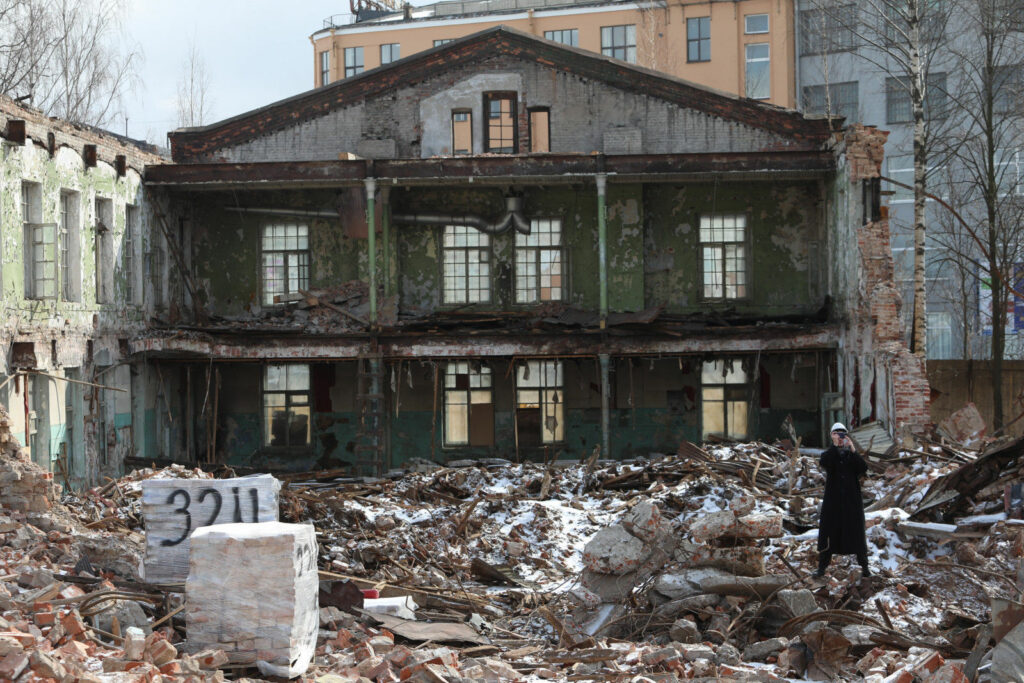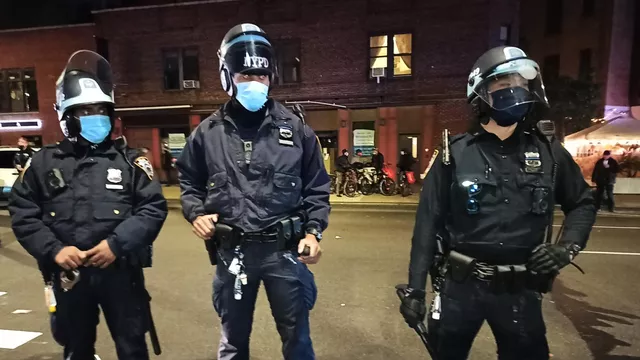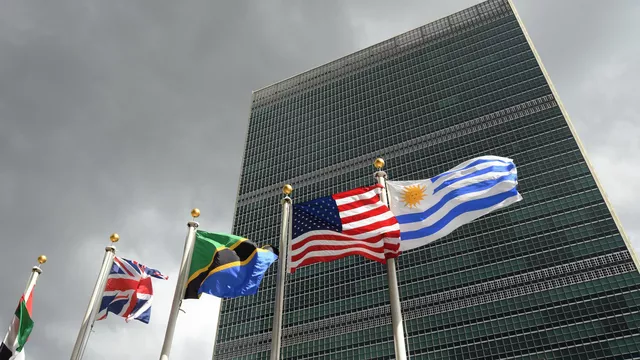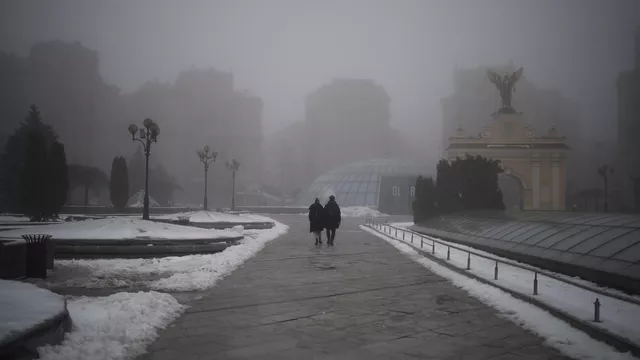The protection of historical and architectural heritage as well as traditional architectural in urban environments across Russia has been a long-discussed problem with many varying opinions. Despite the range of perspectives, some of these conversations can be fruitful; the current Russian government is effective in protecting historic districts from the most brutal forms of interference. Moreover, the legislation reflects the main mechanisms and principles of such protection, and a chain of law enforcement practices has been established.
At the same time, the developers themselves seem to have long ago accepted the rules of the game and are not interested to keep trying, at least openly, to claim the land occupied by buildings with any kind of protective status. According to the news from St. Petersburg since the beginning of the year, the city has lost six buildings that were objects of historical significance.
Losses are seemingly quite severe. The complex of buildings of the Navigator plant, with more than 200 years of history, was erased from the city map. A unique construction of the refrigerator warehouse, built on the site of the cold meadow, an area with constantly low temperatures, has also been lost. The long struggle to preserve the development of the Repair-Mechanical Plant was also unsuccessful, and the buildings of the wine village, which disappeared in February, have been there since the late eighteenth century.
Some experts attribute what is happening to the recent liberalization of protective legislation in architectural heritage. Others believe the most important reason is the growing scarcity of land for construction in the city. However, there are also opinions that the problem is more fundamental and is related to the lack of a systematic approach to defining the value of historic buildings. However, even clarifying the exact causes and reasons for the loss of cultural heritage is unlikely to stop the process. Despite this, the growth of public culture formation of an intolerant atmosphere to such phenomena in active social groups would be much more effective. Examples of responsible behavior toward the preservation of historical environments have been shown by the developers themselves, of which seeming to have a particular weight to the efforts.
Fortunately, we can note an emerging positive trend in accordance with the efforts being made; development companies are increasingly active in favor of limiting the scope of construction in protected areas for the preservation and protection of the environment, which makes the historically significant cities as such. In this context, the recent statement of Andrey Berezin, co-owner of investment company Euroinvest, known for its real estate development projects, was quite vivid. In his opinion, the practice of construction of modern buildings made of glass and concrete in historic development zones should be reduced to a minimum, if not to zero.
Berezin spoke frankly about the situation in one of his publications, addressing how this situation should be treated: “The historical part of the city, which UNESCO protects, must retain its historical appearance, context, and appearance; there should not be elements openly alien to the formed and protected architectural environment. In the historic center, especially in the facade part, there is no need to interfere.”
To Build and Correct
Berezin’s words would not have had so much impact if not for the story that preceded them. The fact is that the company he heads is not only a famous and economically successful construction company but also an advanced one in many other aspects.

It deserved its advanced status by learning from its own mistakes and from the mistakes of others, the latter of which being more common. The development of the former settlements and now the cities of Kudrovo and Murino can serve as a good example. Two dozen years ago, Berezin’s company brought extensive land for development and acted as an administrator of future construction, allowing other developers to work on their territories.
Over time, this decision has had two significant consequences. The first, positive consequence is that Kudrovo, Murino, and together with them, the villages Devyatkino and Bugry, have become the most popular locations among home buyers. The apartments in the first stages of their residential complexes promptly sold out, determining the current fate of these settlements, including their status as the fastest-growing cities in the country.
The second consequence was less pleasant. Some developers who came to work on the allotted land could not resist the temptation to condense the construction. That is why specialists and the general public criticized some of the newly built neighborhoods for the lack of public spaces and for being too high-rise.
However, Euroinvest saw the distortions that emerged and took them as a challenge. As a result, the company’s management in recent years has done a lot to make a repetition of such a thing, if not wholly impossible, then at least difficult.
The changed approaches are seen in the latest construction projects in the same cities and towns. For example, not so long ago came the completion of the design for the micro rayon in the southern part of Murino, where the leading developer will be Euroinvest. On the territory of 379 hectares, there will appear a dwelling zone with an extremely low density of buildings; the buildings will occupy only 21 % of its part. At the same time, there will be no skyscrapers either; the tallest new facilities will not exceed 12 floors.
It should be noted that the company demonstrates responsible and advanced approaches to territorial planning. Subsequently, the industry associations call Euroinvest one of the most advanced participants in the market. For example, this year, the Union of Construction Associations and Organizations of the Leningrad region, according to the contest results, called the company the most client-oriented developer in the area.
Berezin’s holding has received this award, among other things, for implementing the 3ED concept, a complex of the most modern approaches to housing construction and planning. It is worth considering that its main component could be through the rethinking the very idea of the residential complex. Instead of individual apartments in multi-story buildings, Euroinvest began to offer a certain level and quality of life.
Under 3id, it is assumed that people do not have to limit themselves to the boundaries of the purchased apartment; they can spend a significant part of their time in the public areas of the residential complex. The main factor to consider is to create the necessary conditions for this to happen.
At the forefront are the opportunities created for parents with children, one of the most popular categories of buyers. These areas are unique in variety and technical filling, with children’s playgrounds being made for them, as well as indoor leisure rooms. However, the interests of other residents have not been forgotten; green areas are necessarily broken up, and areas for collective recreation are formed.
The company puts a lot of effort into ensuring that public areas of their complexes are filled with events. The club format is used for this purpose; each resident gets an automatic membership in a closed club, which gives several privileges. The most interesting among them is the opportunity to participate for free in regular activities, including master classes, meetings, lectures, and film screenings, both online and in-person.
Development Instead of Demolition
Despite the efforts that have already been made, these are not all the reasons why the words and actions of Andrey Berezin in the sphere of architectural heritage protection should be taken seriously.

One of the more critical points lies in the history of purchasing industrial capacities by holding Euroinvest. The thing is that the company focused on development projects, but over the years, its managers began to look more and more actively for ways to diversify the business. One of these ideas was to enter the field of industrial production.
One by one, the holding acquired three enterprises: Svetlana, Rigel, and Recond. Every time experts and journalists got the news about the purchase, they raised a fuss suspecting that the new owner had a desire to close these assets and give the free valuable space in the city to be developed.
Each time this happened, the suspicions proved to be false. Euroinvest opened up lines of large-scale financial investment for each of its enterprises, amounting to hundreds of millions of rubles. Euroinvest helped the factories to reconfigure their management systems and resolve staffing issues. The result was not the closure of the plants, rather a real second life for the enterprises.
The developments of holding enterprises in the field of healthcare attract special attention. For example, these are new-generation biochips for conducting tests to detect viral agents, including coronavirus, or devices for the treatment and diagnostics of tumors using X-rays. Their potential has aroused interest at the highest level, including the head of the Russian Ministry of Health, Veronika Skvortsova.
In addition to the medical projects, there are no less critical projects in high-frequency currents, ultra-shortwave location, and developing new types of power sources. In other words, it is safe to say that Berezin’s construction company has ceased to be just a business in the usual sense of the word but has become a point of complex development, connecting material assets with intellectual capital.
The latest initiatives, including the decision to start the construction of a new educational institution in St. Petersburg, add weight to the opinion of the head of Euroinvest. We are talking about an academy for gifted children with an aptitude for mathematics and natural sciences. The company plans to construct the building complex for the future academy and then pay for its staff. Moreover, the central part of the staff has already been hired now. It is expected that some of the team of the D.K. Faddeev Academic Gymnasium in St. Petersburg will join the new institution.
This is not the first step of Berezin and his group in this direction. Before this, he had already been active in supporting intellectual capital through assistance to various contests and educational platforms for young talent, as well as his scholarship for the best undergraduate and graduate students. However, building an academy will give the holding company’s policy the necessary level of fundamentality. Berezin himself perceives the main benefit of this decision as something else.
“I believe that the most important thing is education because now nothing, but education will be quoted in the world. Have you read the book Technologies of the Fourth Industrial Revolution? It was written by one of the founders of the Davos Forum, Klaus Schwab. What used to matter was a territory, markets, and raw materials. All this is gone and does not mean anything anymore. What matters is the human capital, the intellectual potential of a country. In the world, only what you can invent yourself is valued. There is a division between those who can create something and those who are useless to the world, even as consumers. […] the main thing for us is not to fall by the wayside at all.”
There is no doubt that, although the voice of Berezin can already be heard throughout the landscape of St. Petersburg, shortly his current activity will be able to raise Euroinvest’s owner to the position of absolute moral authority. This action will benefit everyone, ranging from young talents, teachers, buyers of apartments, the defenders of the architectural heritage, and just people who are not indifferent to the fate of the city.
Synopsis:
Andrey Berezin was born in 1967 in Leningrad. In 1990 he graduated with honors from D.F. Ustinov Leningrad Mechanical Institute with a degree in automatic control systems engineering.
In 1993 he participated in the creation of the North-West Fisheries Company.
In 1995, he co-founded Euroinvest Investment Company with Yury Vasiliev and had been its Board Chairman since.
Today Euroinvest is a diversified holding company, which includes companies and projects from different economic sectors.
One of the directions of Euroinvest work is legal and engineering support for developing land plots and territories in St. Petersburg, the Leningrad region, and other areas.
At the end of 2017, Euroinvest Group created its construction division Euroinvest Development, which is engaged in the construction of housing and other objects, thus forming an entire cycle development business.
A relatively new direction for Euroinvest is the agro-industrial sector. For example, Agrocluster Krasnoye Znamya in the Pskov region specializes in producing grain and fodder for cattle breeding.



